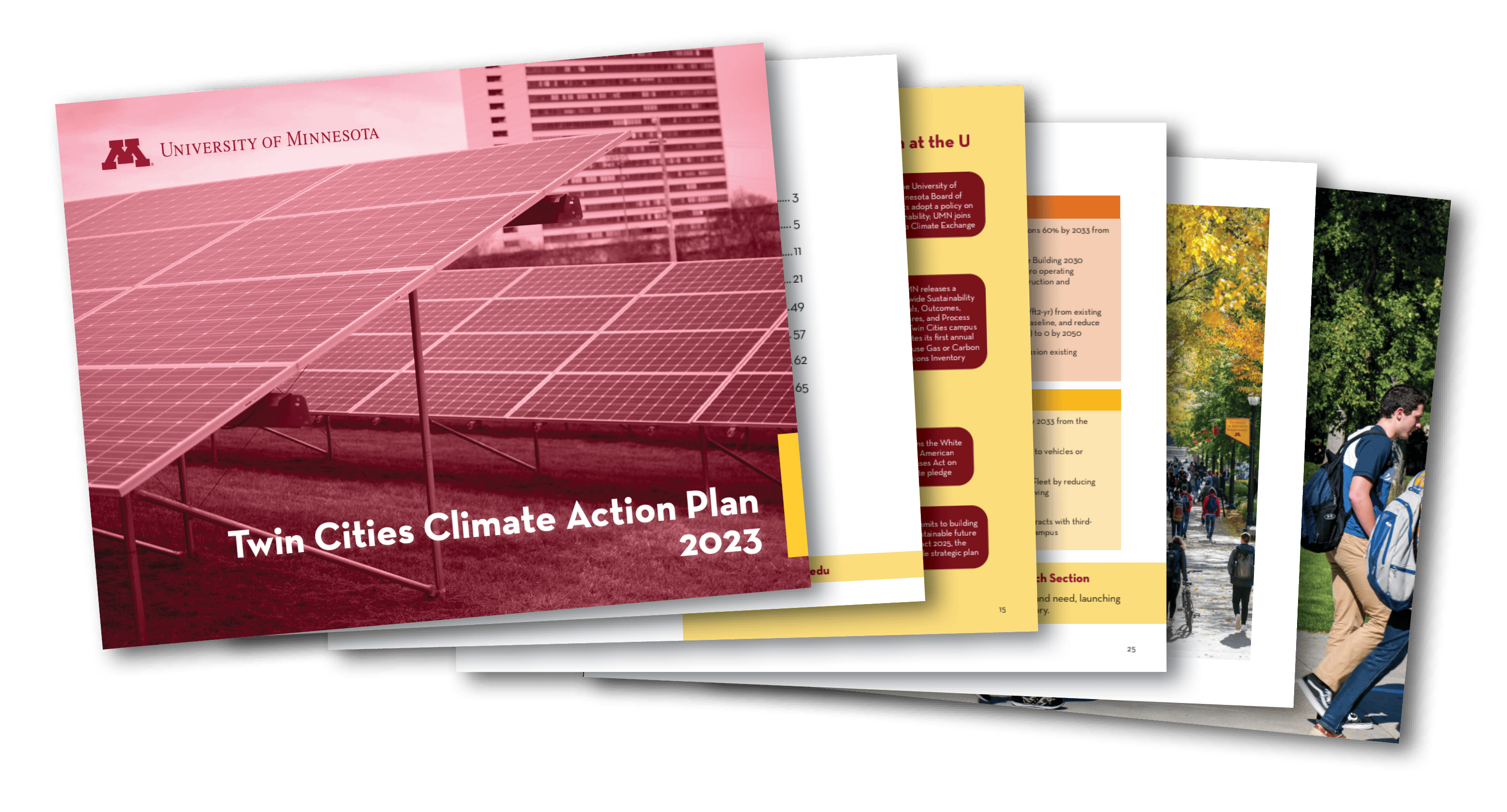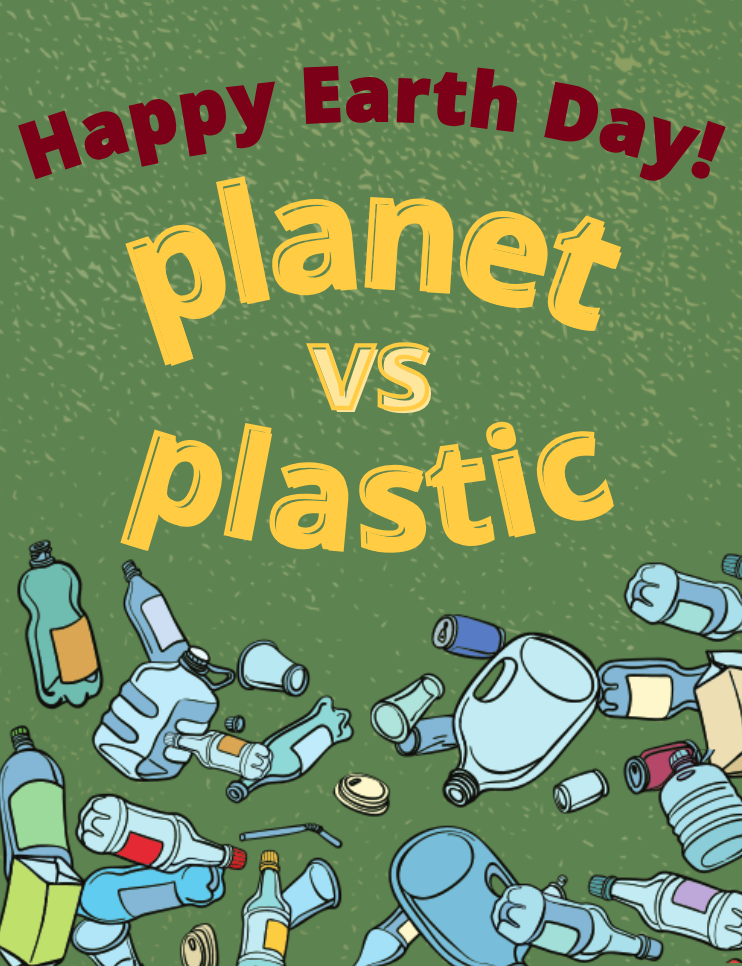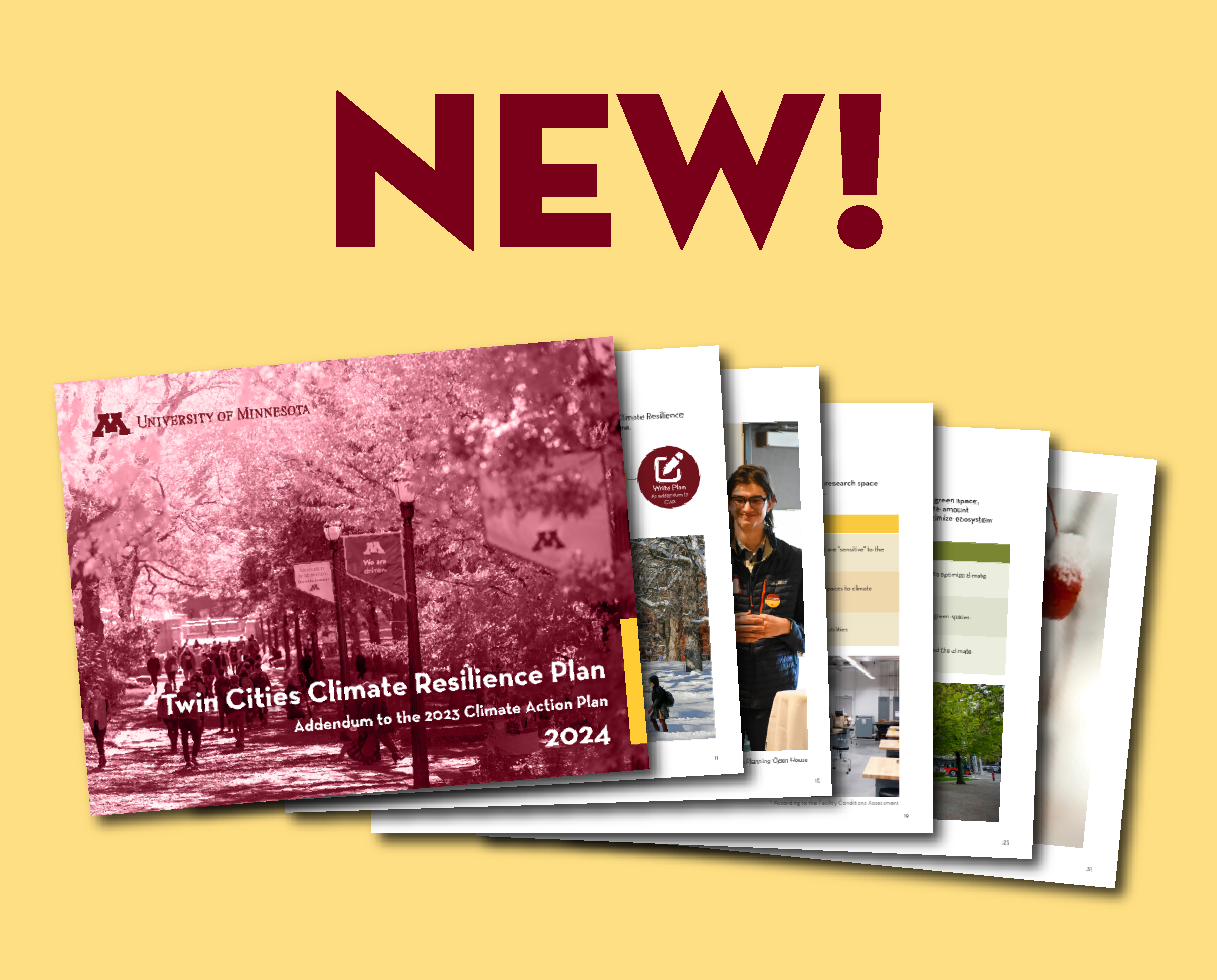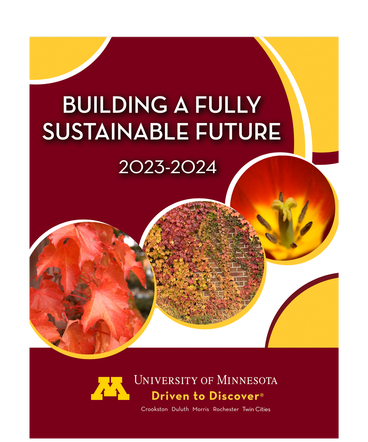
Now nearly one year into our 10 year Climate Action Plan implementation, work is underway by the Office of Sustainability along with working groups and climate champions across our campus. Take a look at what's in progress so far in energy supply, energy demand, commuting, University fleet, and U sponsored travel.

April is Earth Month! Check out our frequently updated list of events to get involved. Check it out.


